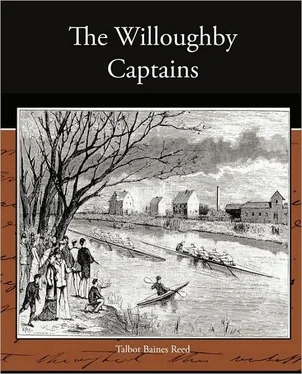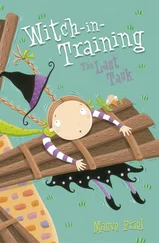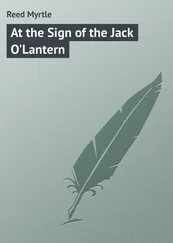At the schoolhouse door he found Riddell waiting for him.
“Oh, Riddell, I say!” exclaimed he, in tones of misery, “I’ve to go to the doctor at once. Silk has told about me. I say, do come with me.”
“Silk hasn’t told about you at all,” said the captain; “I’ve reported you myself.”
“You!” cried Wyndham, in tones of mingled amazement and reproach; “oh, why?”
“Wouldn’t you sooner have had me do it than Silk?” asked Riddell.
The boy saw his meaning at once, and as usual flew from one extreme to the other.
“Oh, of course! What a brute I was not to see it. Thanks awfully, old man. What awful grief I should have come to if it hadn’t been for you!”
“I don’t know at all what view the doctor takes of the matter,” said the captain, gravely; “you had better not expect too much.”
Wyndham groaned.
“If only I’m not expelled!” said he. “I suppose you can’t come too?”
“No. The doctor wants to see you alone, I think.”
“Well, here goes. By the way, of course, you didn’t mention the other fellows’ names?” he added.
The manner in which he said this made Riddell feel doubly glad that the doctor had not insisted on his telling.
“No — I didn’t,” he said.
And off went Wyndham, dismally, to the doctor’s study.
It was an anxious morning for the captain. Wyndham had not returned before first school was over, and Riddell felt he could not rest till he knew his fate.
He told Bloomfield of his morning’s proceedings, but even this new friend’s encouragement failed to shake off the suspense that weighed upon him.
Presently when he could wait patiently no longer, it occurred to him Wyndham might possibly have gone back to his study unobserved, and be waiting there for him. So he went across to the schoolhouse to find out.
But nearly all the studies in the schoolhouse, Wyndham’s included, were empty, as they almost always were at this hour of the day during summer; and the captain was about to return, more uncomfortable than ever, to the Big, when a door at the end of the passage opened, and some one called his name.
It was Gilks, who, as he was dressed, had evidently recovered from his indisposition earlier than was expected.
He beckoned as the captain looked round; and Riddell, inwardly wondering when his work as a police-officer would cease, and he would be able to retire again into private life, turned and entered his study.
Gilks shut the door carefully behind him. He had a haggard look about him which may have been the result of his ailment, or may have been caused by mental trouble, but which certainly was not the expression to which the captain had been used.
“I’m to go to the doctor at four?” he asked.
“Yes. He put it off, as you were reported on the sick-list.”
“Of course he thinks I was shamming?”
“I don’t know.”
“I was — and I wasn’t. I couldn’t make out what to do, that was it, so I stayed in bed. Was Silk there?”
“Yes.”
“Did he say anything?”
“No; the doctor told him to come again at four.”
Gilks took one or two uncomfortable turns up and down the room, and then said, “I may as well tell you, it’s no use keeping it back any longer, for it’s sure to come out. I was the fellow who cut the rudder-line. Did you know that?”
“I had heard it.”
“Who told you — Silk?”
“Yes.”
“I thought so. I knew he would. And he’ll tell Paddy this afternoon. I don’t care if he does.”
“I scarcely believed it when he said so,” said Riddell.
“Eh? I suppose you thought it was rather too low even for me. So it would have been once,” he said, bitterly.
“But you backed the Parrett’s boat all along,” said Riddell. “Oh, that. If that’s all that puzzled you it’s easily explained. Perhaps if you were doing a thing like that in the dark, expecting to be caught out every moment, you might make a mistake too.”
“Then you meant to cut our lines?” asked the captain, seeing the whole mystery explained at last.
“Of course I did; and so I should have done if the rudders hadn’t been shifted, and Parrett’s put into the schoolhouse boat.” He took a few more turns, and then continued, “You may fancy what a pleasant state of mind I’ve been in since. I daresay you’ll be glad to hear I’ve been miserable day and night.”
“I’m very sorry for you,” said Riddell, so sympathetically that the unhappy boy started.
“You wouldn’t be if you knew it was all to spite you. I was as bad as Silk in that, though it was his idea about cutting the lines. The accident turned out well for us in one way — nobody suspected either of us. But Silk has led me the life of a dog ever since. I’ve not known what minute it might all come out. He was always holding it over my head, and I had to do anything he told me. I can tell you I’ve thought of bolting more than once, or telling Paddy.”
“It must have been a dreadful time for you,” said Riddell. “So it was. But I’m glad it’s all over now. I shall be glad to be expelled. I’ve been ashamed to look any one in the face for weeks. I used to be happy enough before I knew Silk, but I don’t expect ever to be happy again now.”
There was a tremble in his voice as he said this, which went to the captain’s heart.
“I hope it’s not so bad as that,” said he, quietly. “Everybody here hates me, and they’ll hate me all the more now,” said Gilks. “You and young Wyndham are the only fellows that have been good to me, and I’ve done both of you nothing but mischief.”
“I think,” said Riddell, “the fellows will soon forgive. They would, I know, if they guessed how you have suffered already.”
“You are right. I have suffered,” said Gilks. Another long pause followed, during which the minds of both were full.
The one sensation in the captain’s heart was pity. He forgot all about the crime in commiseration of the wretchedness of the criminal. Yet he knew it was useless to hold out any hope of a reprieve, even if that had been to be desired. All he could do was to let the poor fellow know at least that he was not friendless; and this sign of sympathy Gilks gratefully appreciated.
“I don’t know why you should trouble yourself about me,” he said, after some further talk. “You owe me less than anybody. I’ve been nothing less than a brute to you.”
“Oh, no,” said Riddell; “but, do you know, I think it would be well to go to the doctor at once?”
“I mean to go at once. Do you think he’ll let me go off this afternoon, I say? I wouldn’t dare to face the fellows. I’ve got most of my things packed up.”
“I expect he would. But you stay till the morning. You can have my study. It’s quieter than this.”
Perhaps no more hospitable invitation had been issued in Willoughby, and Gilks knew it. And it was too welcome not to be accepted gratefully.
The captain soon afterwards departed, leaving the penitent behind him, subdued and softened, not by any sermon or moral lecture, which at such a time Riddell felt would be only out of place, but by sheer force of kindness — that virtue which costs so little, yet achieves so much.
In this new excitement the captain had for the moment forgotten young Wyndham, but he was soon reminded of that afflicted youth’s existence on reaching the Big.
He was there, waiting impatiently. A glance sufficed to show that at any rate the worst had not happened, but Wyndham’s face was such a mixture of relief and woe that the captain felt some misgivings as he inquired eagerly what was the news.
“He was frightfully kind,” said Wyndham, “and talked to me like a father. I never felt so ashamed of myself. I’m certain it’s what you said made him let me off so easy — that is, so what he means for easy. He said nothing about expelling, even when I couldn’t tell him the names of those two fellows. But he’s gated me till the end of the term! I may only go out for the half-hour after first school, and half an hour after half-past five. And you know what that means,” he added, with a groan.
Читать дальше












